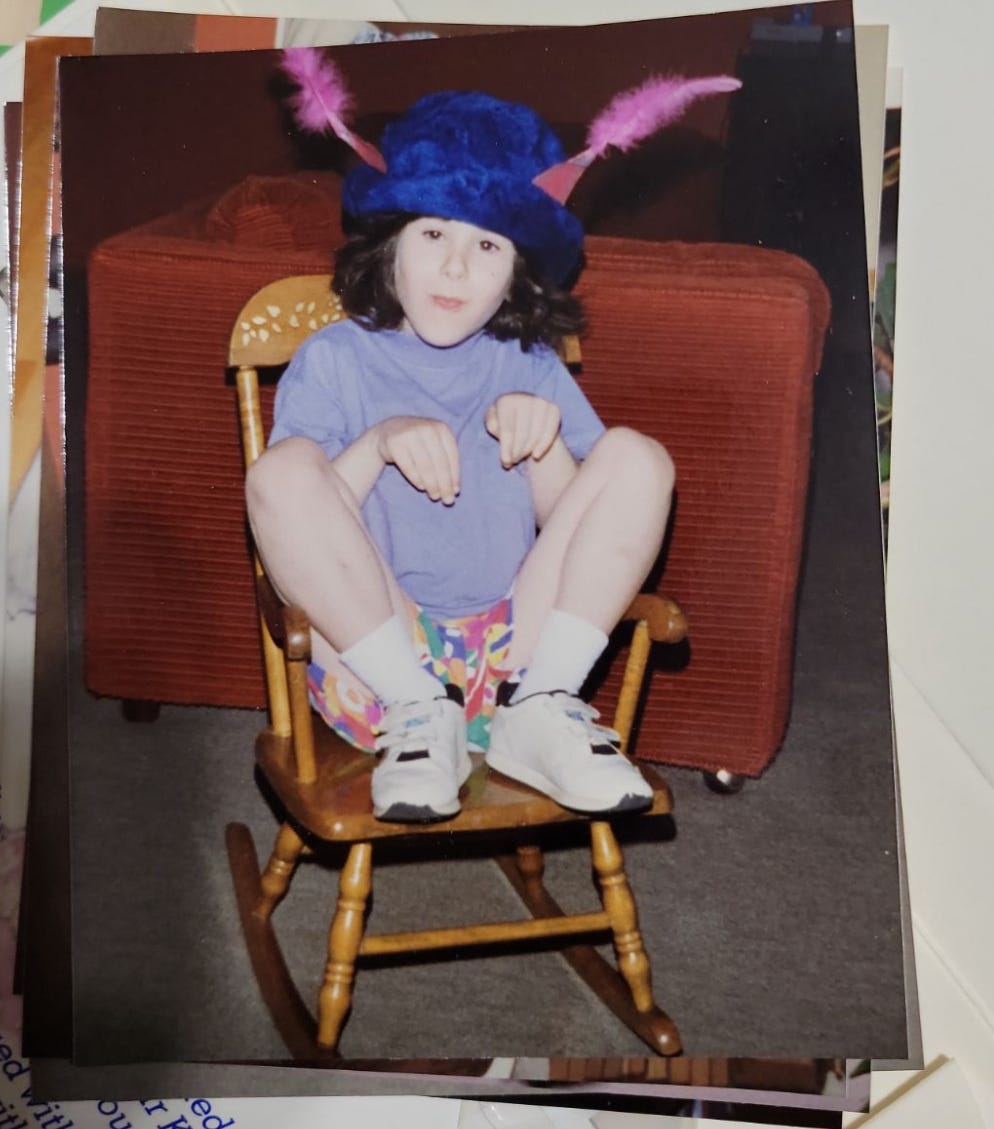Breaking Free from the Critic: Learning to Love Myself and Others More Completely
I realized many of the traits I'd "filed away" and deemed as "bad," "shameful," and to "never see the light of day" could be attributed to being Autistic (or other forms of NeuroDivergence I embody).
Receiving my Autism diagnosis was a pivotal moment that plunged me into an identity crisis, reshaping my understanding of who I was.
After a lifetime of living a lie (believing I was Neuro-Average), I was grappling with the daunting task of defining my true Self beyond the suffocating weight of societal expectations.
Throughout my life, I'd packed up the parts of myself that other people had deemed 'unworthy,' 'annoying,' 'strange,' or 'weak'—anything that made me stand out in the wrong way and provoked scorn in others (the parts of myself brought me shame, the parts I tried to hide, and the parts that represented everything about me that would 'never be enough' for the people around me).
Over and over again, people belittled and berated me for the ways I stood out (because nobody knew I was NeuroDivergent when I was growing up).
From a young age, I was propped up beside Neuro-Average people, measured against them, compared to them, and encouraged to be more like them - despite my mind being wired very differently from their minds.
When I fell sort of these (impossible) expectations, my failures were seen as the result of behavioral issues (refusal, not applying myself, or not trying hard enough).
I was frequently scolded for what I could not do (like sitting still in class when I was young).
When I was good at something, my teachers (and others) would use my areas of strength as "evidence" that I was "lazy" or "not applying myself" in my areas of weakness.
My best was all I could give, but eventually, I learned that my best would never be good enough for most people. This struggle left me feeling inadequate and filled with self-hatred.
I got into the habit of ignoring when I need to give up, stop, rest, or tap out on a project.
To avoid being told "I needed to try harder," I started putting in way more work than everyone around me (so it would always be obvious to others that I HAD tried VERY HARD and wasn't "lazy").
I started by trying to prove myself to others, but eventually, something shifted.
After years of being told horrible things about my worth by people around me repeatedly, I began to internalize all the nasty things people said about me, carrying the weight of their words like a heavy burden.
After enough abuse and vitriol, the angry voices of the people around me became the voices of abusers inside my own mind.
The hostility and scorn I experienced outwardly became mirrored inside me.
I hated myself so fiercely that I fought to keep all of my undesirable parts confined, presenting only the 'ideal self' to the world (a self I felt no connection to).
I hated these parts of myself (the undesirable ones), packing them away tightly in boxes, hidden from the world - buried so deep (inside me) that nobody could ever find them.
Each piece deemed "insufficient" was targeted as something to overcome, eliminate, evade, or bury so deeply it never comes out.
Nobody could hurt me more than I could hurt myself.
When I "fell short," "made a mistake," or did something "inappropriate," my inner critic would quickly appear just in time to break me down (more violently and with more disgust and hatred than any external person was ever capable of).
This inner critic, though destructive, was doing its best to protect me, keeping me in line with the expectations of the world around me (which I often fell short of).
When I did not know how this mind in this body works (or of NeuroDiversity and the variety that can be found in every human mind), I was stuck thinking we were all the same, and I HATED myself for all the ways I was "different."
My intense self-hatred didn't just affect me. It spilled over into my relationships and interactions with the people around me.
When I hated myself, I found myself treating others poorly (especially when they reminded me of the aspects of myself that I despised).
People outside myself believed my failure to conform was laziness, so I began to believe the same, and that anyone around me who also failed to do things I struggled with (but was expected to do regardless) was also "being lazy" or "not applying themselves."
This struggle significantly impacted my relationships (when my inner critic became embodied outwardly, criticizing the people around me, trying to motivate them using the same means to provoke me) - which didn't go well.
People didn't respond well to being picked apart and compartmentalized (because people need to be loved and appreciated - something I'd never experienced because I didn't even love or see myself as a whole).
Paid subscribers have access to the rest of the story. Thanks to every one of you for supporting my work.
If you are in need of a discount, please use the link below to get your subscription at a deep discount (because I don't want money to be an obstacle to people):
https://neurodivergentrebel.substack.com/LowIncomeDiscount
For readers experiencing financial hardship, please note that this offer is exclusively for you. This discount is offered on the “honors system” - I am not going to ask anyone for proof.
Please, kindly refrain from taking this offer if you do not need it.
I hope this helps,
- Lyric
Keep reading with a 7-day free trial
Subscribe to NeuroDivergent Rebel’s Substack to keep reading this post and get 7 days of free access to the full post archives.







